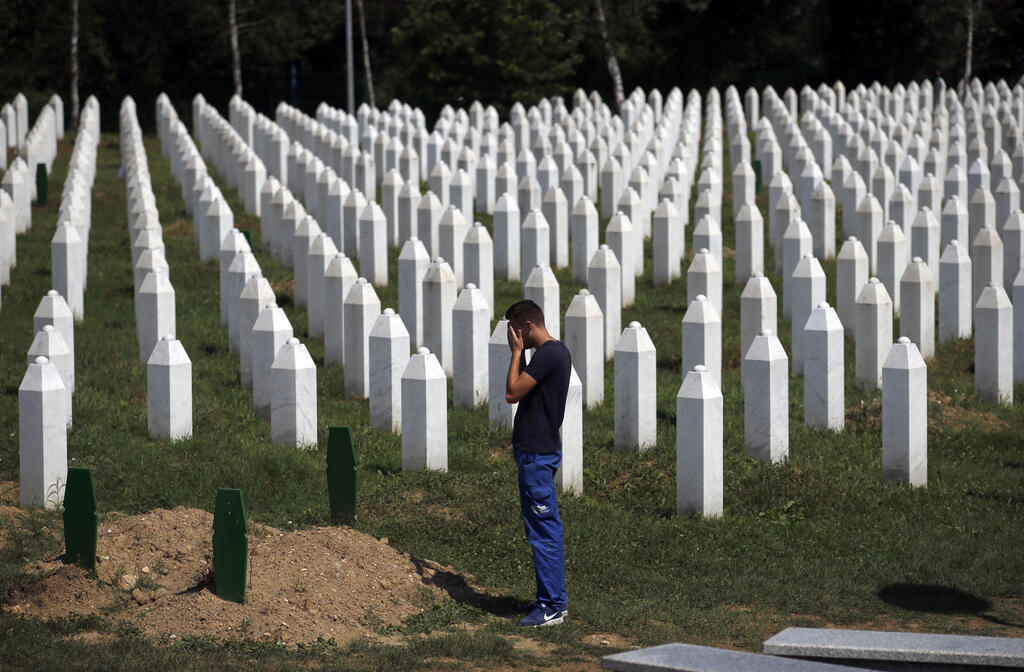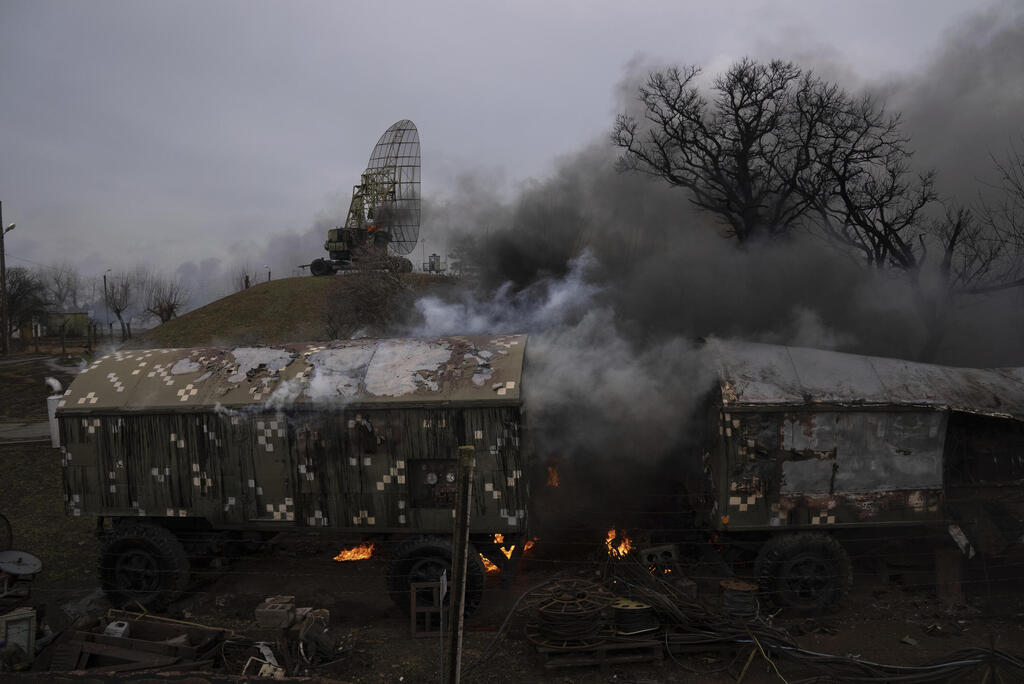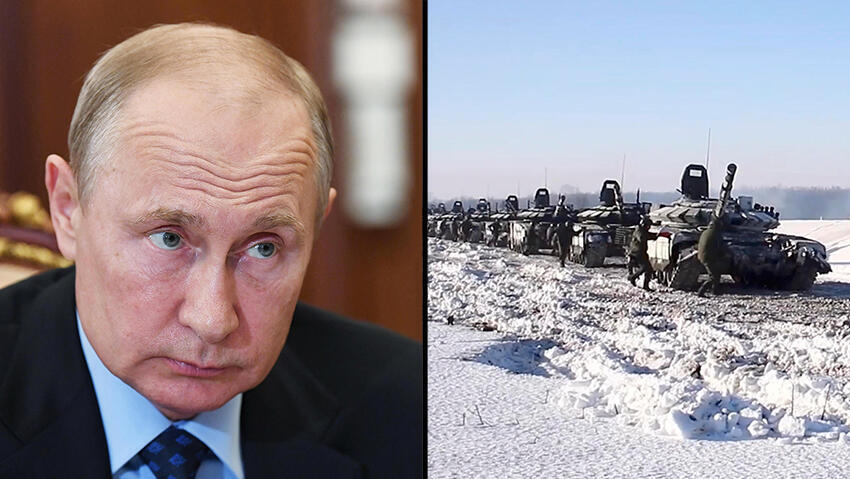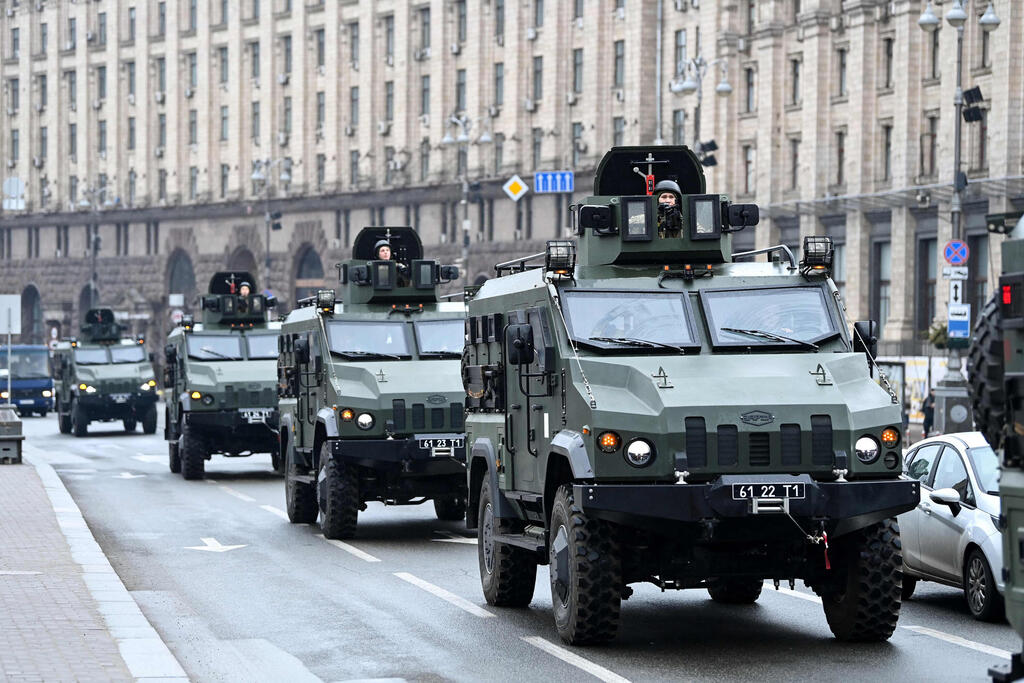Getting your Trinity Audio player ready...
"Why does the world remain silent? Why won't anyone interfere? Why has everyone left us to fend for ourselves?"
These are some of the questions asked all over Europe some 80 years ago, and by Jews all around the world ever since. Now, this question is being asked around Ukraine.
This same question was asked, and received a very bleak answer, 27 years ago in Srebrenica, Bosnia in the greatest atrocity of the Yugoslavian war in which over 8,000 Bosniak Muslim men and boys were slaughtered by their ethnically Serbian compatriots.
The Bosnian film Quo Vadis, Aida? (Where are you going, Aida?), which recently premiered, turns a painful spotlight on the repressed massacre that happened less than three decades ago on European soil.
Beyond being a localized Schindler's List, a narrative version of the horrifying events of July 1995 in which Serbian troops separated Bosnian women from their men, and slaughtered them without mercy in a clear act of ethnic cleansing.
The film Quo Vadis, Aida? focuses on the question where was the world when these events unfolded happened?
4 View gallery


The Srebrenica Genocide Memorial honoring the victims of the 1995 Srebrenica massacre in Bosnia
(Photo: AP)
Specifically in this case, sadly enough, the world was right there: The United Nations forces even declared Srebrenica a "safe zone", and a well-equipped Dutch regiment gathered thousands of civilians in its base, only to later deliver them back to the Serbs and straight to certain death.
The film presents a scathing criticism of the cowardly and impotent behavior of the soldiers stationed there, in what became a source for national trauma and shame in the Netherlands.
But beyond a painful reminder, it also raises a niggling question: Could this have ended differently? The Dutch soldiers, as highlighted in the film, were mostly "good people", who tried to do the right thing but couldn't, and mostly feared for their own lives.
This begs the question: Who would go out and fight a war that is not theirs? This question is especially pertinent to Israelis who are experts when it comes to clicking their tongues and pointing blaming fingers at the "world," for reasons that are perfectly understandable.
4 View gallery


A military base damaged by Russian shelling, near the city of Mariupol, Ukraine
(Photo: AP)
But has there ever been a movement or a serious discussion vis-à-vis sending troops into conflicts that aren't ours, like in the Democratic Republic of Congo for example?
Even the idea of taking in a symbolic number of refugees from Afghanistan was vehemently rejected by all sides of the political spectrum last summer.
Every Israeli would immediately pull out the same stock answer: We've already got enough troubles and conflicts on our own plate. Let the Austrian and Swedish mothers sacrifice their children to help Africa. Except such statements are naïve and mostly an attempt at playing dumb.
As history has shown us time and time again, from Bosnia to Ukraine, most people around the world will sacrifice themselves for their nation or religion, but not for a person, or even a child, on the other side of the globe, no matter how bitter and cruel their fate is.
4 View gallery


Russian President Vladimir Putin; Russian tanks rolling into Ukraine
(Photo: EPA, Reuters)
When Soviet forces liberated Auschwitz or when Allied forces stormed the beaches of Normandy on D-Day, they didn't do so to "save" anyone, but to protect their interests.
Therefore, when Israelis preach to the Europeans or Americans about their unwillingness to die on the battlefield in Donetsk, they must first ask themselves whether they would do the same.
Second, does the average European believe Russian tanks will be rolling down the streets of Berlin and Paris in the coming decade, even if the West does end up losing in Ukraine?
Assuming the answer to that is a no, all that remains is the realization that in Kyiv, as in Afghanistan and south Lebanon — nations are left to defend themselves by themselves.


